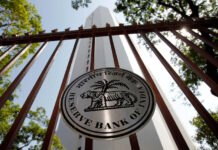The UP police theory on why it killed Vikas Dubey doesn’t stand to reason. The politico-criminal nexus will never be exposed
UP gangster Vikas Dubey may not have anyone mourning his death in a stage-managed accident cum encounter, responsible as he was for many killings, the last being of eight policemen. But does this sit easy on the conscience of the police, which has put out the most outrageous and improbable theory of his attempt to escape, one that triggered it to open fire? Is it not its job to deliver the culprit for courts to decide? Does it not indicate that the political patrons of Dubey and their protector policemen had too much to lose had the don spilled details of the unholy politician-criminal nexus that has entrenched itself in the State in a mutually self-serving manner? Does this not damage Chief Minister Yogi Adityanath’s image of a no-nonsense leader with zero tolerance for corruption and mafia, for good, considering he was personally supervising Dubey’s case? Or is it that his individual will stands no chance in front of systemic imperatives, which his party, too, has endorsed? Dubey himself was sensing that he would be eliminated, what with the police announcing a bounty on his head and five of his aides killed in orchestrated scenarios. So he surrendered, to negotiate a longish jail term for the right to live. But his protectors and creators were scared that with all the media attention on his arrest, he could have just spilled the beans or leaked prized information. So they got rid of him. This haste is troublesome for the simple reason that had the police followed processes and built a solid case on his killing of their colleagues in Kanpur, they could have anyway got the death sentence for him. Even assuming that some among the forces had tipped Dubey about an impending raid, which he used as a trap to ambush the cops, the UP police could have used his past crimes to justify the severest penalty. Why did it feel so disadvantaged and compromised as to ignore the provisions of the law and shoot to kill? Unless the men in uniform were told to play executioner. The sad part is that the focus has now shifted from Dubey, the criminal, to Dubey, the victim of police excesses. And nobody is even discussing the heinous nature of his crimes. This, too, is then an equal travesty of justice.
According to the UP police, while Dubey was being transported back to the State, one of the cars in the convoy overturned. Taking advantage of the situation, he allegedly attempted to snatch a weapon and flee the scene, following which the police opened fire and shot him. If the narrative sounds familiar, that is because it is. Most of Dubey’s aides died in such “encounters” after “attacking” the police and trying to “escape.” It matters little why the policemen “conveniently” forgot to secure their weapons as per rules, did not handcuff Dubey or how he managed to escape from an upturned car with all doors shut. The police theorists also forgot to factor how a car that skids on a smooth tarmac doesn’t leave tyre marks. In the end, many questions will be left hanging like aerosols that disintegrate beyond a certain point in time. Who were the political leaders who promoted the mobster’s criminal empire and his clout? Which all policemen in the force are in cahoots with criminals? The fact that deputy SP Devendra Mishra, who was among the eight policemen killed, had warned his seniors of Dubey’s hold over the justice system but was ignored speaks a lot about the don’s clout. Which netas are involved with criminals in the State? Dubey, who has been patronised by the ruling BJP and Bahujan Samaj Party (BSP) at various times, had of late tried to curry favour back with the BJP. Apart from intensifying caste wars for votebank consolidation, he was also a quick facilitator of land and business deals that political parties, their sponsors and bureaucrats found attractive. So, who is the UP Government trying to protect? India is a democracy after all and even criminals with such intimidating rap sheets like Dubey’s have a right to justice, representation and being heard in a court of law. Besides the Supreme Court has declared encounter killings as unlawful. But it is very obvious that the Adityanath administration and senior Ministers have given their tacit approval to this “encounter culture” which abounds in the State as does police impunity. And with the killing of Dubey, one wonders if Adityanath is indeed serious about flushing out criminals and cleaning up the police at the same time. If we do not break the politico-police-criminal axis, cleansing is not possible. In a society governed by the rule of law, the death of a policeman cannot be avenged by encounters of criminals. Considering the scale of Dubey’s crimes and the involvement of Government officials and politicians, the State Government should have entrusted the probe to an independent and impartial agency immediately after the arrest of the don and his henchmen. But it seems the Government, too, is trying to protect someone, somewhere and has given the police a carte blanche. Will we ever know?






























